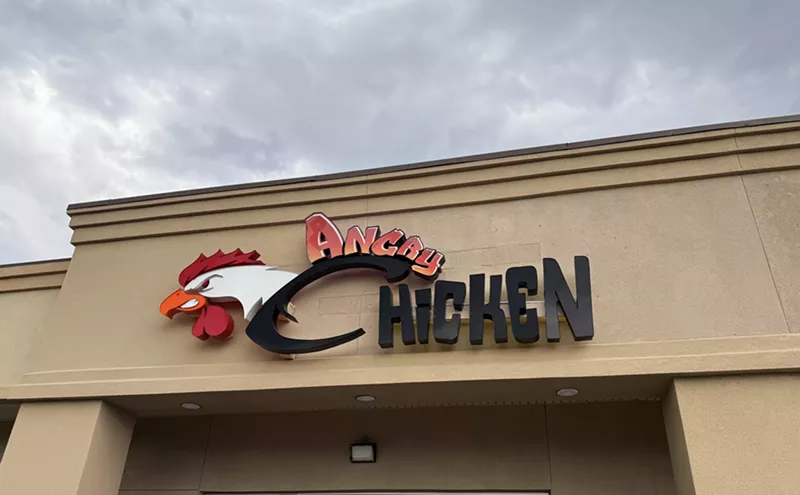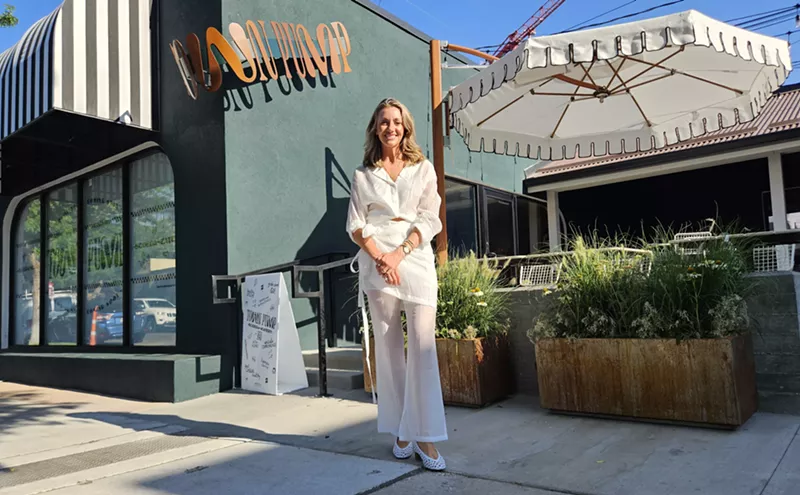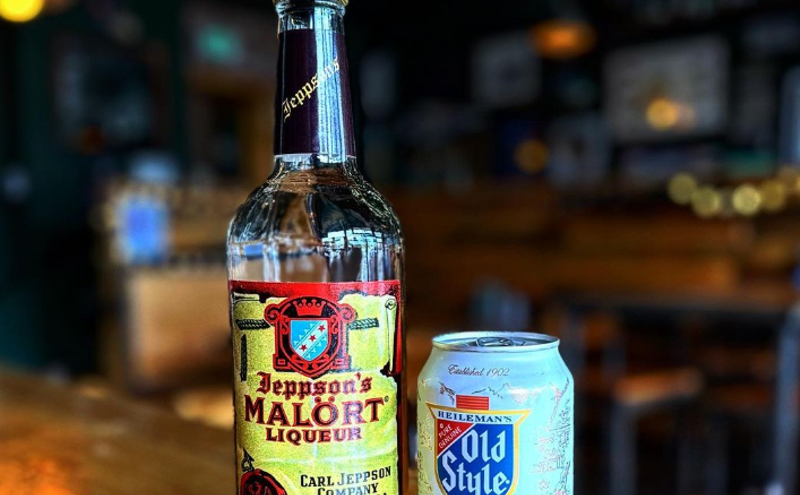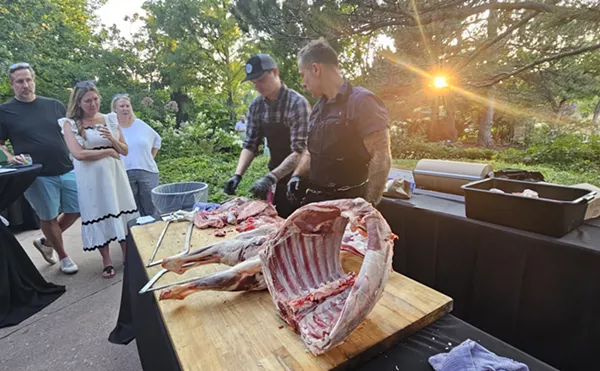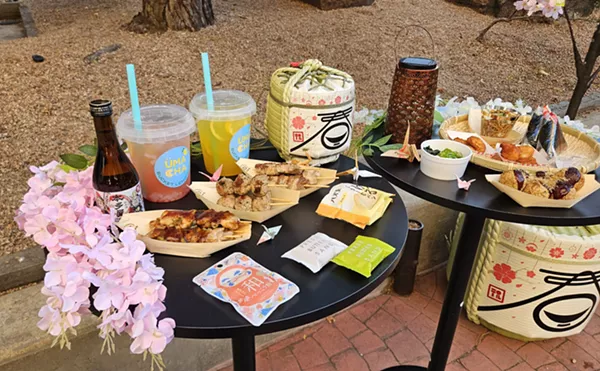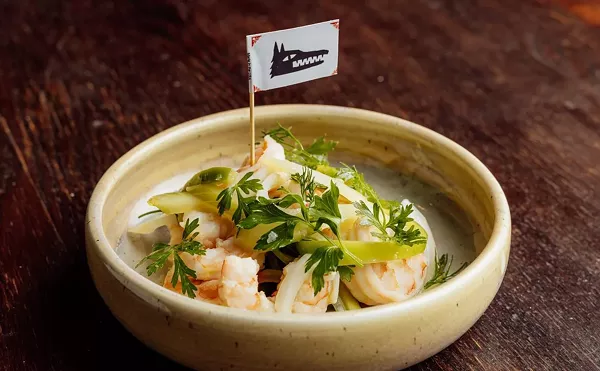With appearances by Jeff Bridges and executive producer (and Westword favorite) Tom Colicchio, and music by T Bone Burnett and The Civil Wars, the documentary A Place at the Table has a lot of star power to drive home its urgent message about hunger in America. But the people who steal the show are the Coloradans who make the point by telling their stories in front of the camera.
The most affecting figure in the film is Rosie, a fifth-grader in Collbran, Colorado, who talks with heartbreaking sincerity about her food insecurity. Leslie Nichols is the teacher who delivers food donations to Rosie and other needy families in Collbran. Westword sat down with Nichols and Table's co-director Kristi Jacobson to talk about Colorado's hunger crisis, what's happened with Rosie since the filming, and what you can do to help.
See also: - A Place at the Table documents hunger in Colorado - Chef Matt Selby wins first Noel Cunningham award for his commitment to end child hunger in Colorado - Coalition for Hunger will help Denver restaurants feed the homeless
Westword: How did you decide on having Collbran -- and Leslie and Rosie -- in the film?
Kristi Jacobson: We've been working on the film for some time, and we began filming with Barbie [Izquierdo, a single mother in Philadelphia] and the Witnesses to Hunger in Philly, partly because they were amazing and they had an amazing story.... But we also knew that hunger is happening everywhere in America. Not just in the cities, and not just in Appalachia, where people expect it to be happening. And we were curious to explore America. Real American cities, not on either coast, and we were doing a lot of outreach with a lot of groups on the ground fighting hunger, and around the time we'd gotten a little chunk of funding, I had been talking to Kathy Underhill at Hunger Free Colorado.
And we just needed to get out there, we had talked to so many people on the phone. And the connection that you make face-to-face is just not the same as on the phone.... Kathy led us to the Food Bank of the Rockies, over on the Western Slope... And there there were some people who knew Pastor Bob at the Plateau Valley Assembly of God in Collbran. And they said, "I know this guy, and I know this community, who are working so hard, and as hard as they're working to make sure people aren't hungry, they're working as hard to make sure they're attacking the shame."
And we'd just begun to understand the shame piece of it. So it just so happened that it was a Wednesday, and at that time Pastor Bob was having the Wednesday night dinners, and we went up there, and we visited with him, and we started a conversation that turned into a year-long -- well, a life-long relationship, but a year-long filming relationship.
You said you saw Collbran as a microcosm of America. Why Collbran and not Philadelphia or Mississippi?
KJ: I think that Philadelphia represents urban America. And I think that the Mississippi Delta is a special, unique and important place, in our nation and our history -- and hopefully our future. And I think there are large swaths of America where people are living in small towns, in communities that are wonderful and care about one another. And I just felt that when we arrived [in Collbran] that we'd found this town that felt really representative of what I believe to be America, and what I thought many Americans would also see as American.
You had such an incredible gift in Rosie, who is so candid about what she's going through. How did you come across her?
KJ: Leslie shared with us some stories about some students that you knew...
Leslie Nichols: And the impact of hunger on my classroom.
KJ: We were really affected by that interview that we did with you, and the profound impact you described. And we were back in the editing room watching that interview, and you kept referring to this one student. And I remember we called you up and said, "I wonder if we should talk to that student." And you visited with Rose's family, and we had some phone conversations and planned to come out. We'd been in the community filming for some time, so there was -- I hope -- trust between us, and trust in the community members about who we were and what we were doing.
When Rose walked in the door, I knew it was her. She was just how you described her, and she just lit up the place. And when we talked for like half an hour, I just thought, 'This is an amazing young girl.' And a courageous family, for sharing that kind of struggle in that moment. It's courageous for Leslie, believe me, for sharing it years later. What's happened with Rosie and her family since the filming?
KJ: Rose continues to have some struggles in school, but the good news is, Trish found a new job... But she and Rose, and one of Rose's sisters, are living the the house of a man that Trish cares for. So they're in a different setting. One in which, at the moment, they're little bit less food insecure. But it's a roller coaster.
LN: I still deliver food bags. But as far as the home situation, it's definitely more secure. Work is a little bit more secure, too, but there's still that need. Because like so many working Americans, just because you're working doesn't mean you're able to provide consistently, because you have all of those other things coming at you that you have to take care of, too. There's still a need, and there's still a relationship [between us] , though I'm not her teacher anymore -- I visit with them, and see them weekly.
Leslie, what was it like having the cameras in your classroom?
LN: Well, I was a little nervous at first, because I really wasn't sure what they wanted from me, but I was okay with it, really. They were so down-to-earth and personable, they kind of just became part of the family. (Laughs.) So it wasn't any different. I'm comfortable being a teacher, and I'm comfortable coming from hardships and sharing that with others, and so I think more than anything it was exciting. Because it's an opportunity to educate people on a much bigger platform than just word of mouth in my community, or just in conversation with the students that I teach. I'm pretty open with them about what it's like to struggle, and I understand that.
And you said in the film, that feeling of helplessness is still with you. How do you deal with that, day by day?
LN: I think I find strength in knowing that because I'm more open about that struggle, it hopefully will impact people in positive ways, both for change and in building relationships with other people. Sometimes when you let down those guards and those walls, that's when the relationship piece happens, and growth happens.
Kristi, this is certainly not your first rodeo, when it comes to documentaries. Do you find it hard to let your subjects go, or do you want to keep up with them?
KJ: I think that every film I've made, you make these relationships that are originally based in capturing footage to tell a story. But in order to do that well, there has to be mutual trust and mutual respect. And certainly that's the case in this film. And I found with this film, more than any other that I've worked, the most difficult thing was to go home at night when we finished filming -- and, at times, to show up to film. It was challenging as a filmmaker and as a human, but the way I worked though it, is that by capturing the story, we are hopefully are going to have an impact, and everybody involved understands that.
And they are bold enough and courageous enough to share their, story, so I felt the responsibility as a filmmaker to tell that story well. And that's when the filmmaking instinct kicks in, and I set the bar really high, because you really want to get it right for everyone who risked sharing their story with someone they didn't know days before, or months before, or weeks before. So there's a reward in that aspect of it, but it is difficult, day-to-day, to go home. And I've found that the relationships and the people that I've met in making this film have, without question, impacted me forever. And I anticipate keeping in touch; these are friendships that don't go away when the camera goes away.
I wanted to ask both of you, when people see this movie, they're thinking of solutions and what they can do. So what would you recommend?
KJ: I think that seeing the movie is an important first step in becoming aware. I think that matters -- not everybody is. From the beginning of the making of the film we have been working as a team, working concurrently on trying to build a campaign that will enable us to answer that question -- because It's a complicated question. There are a lot of people that need to do more. Our politicians need to do more, but we need to do more as individuals and citizens. One piece is that we've established this campaign that involves this national database that we've created -- well, that Participant [Media] has created, and they know how to do this. (Laughs.)
But we've been working with all the leading national and state and local organizations working in this space, so I don't have any misconceptions about myself. I'm not an expert, I'm a filmmaker. But we have brought together this coalition of experts to build this database, so that when the person sees this movie and they are moved to act, they click on takepower.com/table, they will immediately be able to engage at a political level, to whatever is happening nationally, at that very moment, when they click in.... At the end of the day, I think that we all, no matter our place in this country or at the table, have a responsibility to once you know about this, to engage with the solution.
LN: I think that's the biggest thing for me, too, is that you don't have to be wealthy. You don't have to be connected to every huge outlet or inlet or whatever you want to call it. But I think a lot of people will say, "You can't solve this issue with food pantries. You can't solve this issue with charity." I don't know that I always disagree with that, but I think what it comes down to is: do what's right. In our community, what we're doing is working. It's not always the healthiest thing, but we're impacting the people significantly. I can deliver 1,500 food bags a year, 24 to 30 food bags a week, I'm impacting them just by myself. And there's a lot more than just me and my community. So I think that if I can accomplish that as one person, not that I want accolades for it -- I think anyone can do it.
A Place at the Table opens in Denver on Friday, March 1, at the Landmark Mayan Theater. And Corner House, the new Jefferson Park restaurant, will also host a screening at 4 p.m. on Sunday, March 3; chef Matt Selby and partner James Iacino will donate donate 25 percent of sales of food and beverages during the screening to Share Our Strength/No Kid Hungry.
The Table website at www.takepart.com/table will provide resources for those seeking food assistance and ways to help.
Follow @CafeWestword




